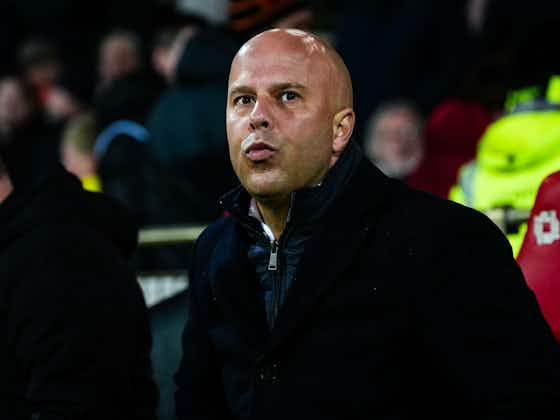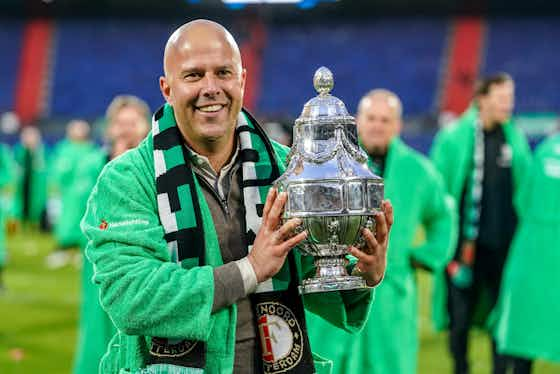Anfield Index
·22 May 2024
Report: Arne Slot’s Arrival Proves Liverpool’s Michael Edwards Power Shift

In partnership with
Yahoo sportsAnfield Index
·22 May 2024

Bill Shankly’s influence on Liverpool Football Club is monumental, encapsulating more than just his successes on the pitch. He revolutionized the club’s management structure, a change that persists in how managers and coaches are perceived at Anfield. His belief was simple and profound: “At a football club, there’s a holy trinity — the players, the manager and the supporters. Directors don’t come into it. They are only there to sign the cheques.” This ideology has permeated the club’s fabric, making the recent appointment of Arne Slot as Liverpool’s first ‘head coach’ rather significant. This role delineates a shift, subtly moving away from the all-encompassing power Shankly once heralded.
The role of ‘head coach’ at Liverpool, as reported by The Athletic, underscores a nuanced yet pivotal transition in club governance. Arne Slot’s appointment comes at a time when Liverpool’s owners, Fenway Sports Group (FSG), restructure the upper echelons of the club’s hierarchy. The reintroduction of Michael Edwards as a key figure in the football department, alongside Richard Hughes as the new sporting director, marks a strategic pivot aimed at refining the club’s operational dynamics. As The Athletic points out, “Liverpool have appointed Arne Slot as their new head coach — and The Athletic has every angle covered,” highlighting the multi-faceted approach to this restructuring.

Photo: IMAGO
The shift from a manager-centric model to a more dispersed power structure is not entirely novel in football but represents a significant change for a club steeped in the traditions that Shankly set. Under previous management, such as Jurgen Klopp, the role was more akin to that of a traditional manager with broad responsibilities. However, Slot’s position focuses more on coaching, with Hughes handling the strategic aspects like transfers, akin to the division of labour seen in some European clubs.
The potential benefits of such a structure are numerous. It allows a head coach to concentrate purely on team performance and player development, leaving broader strategic decisions to the sporting director. This can theoretically lead to a more focused and efficient approach to team management. However, as Slot steps into this role, the boundaries of his authority and influence within the club will be a subject of keen observation.
One might argue that this redefinition of roles could lead to clarity and efficiency, but it also raises questions about the balance of power. Will Slot have the necessary authority to implement his vision, or will he be overshadowed by the overarching strategies dictated by Edwards and Hughes? As noted by The Athletic, “While the Dutchman is obligated to fulfil a whole range of media commitments, it seems unfair to expect Slot to be the best person to have all the details at his fingertips to provide all of the answers all of the time.” This statement encapsulates the potential challenges he might face in a role that, while focused, might also be restricted.
Moreover, the reaction of the supporters to this new setup will be crucial. Liverpool fans, deeply connected to the club’s history and values, might view this change through a sceptical lens, especially if the results do not immediately reflect positively. The legacy of Shankly and the ethos he instilled about the ‘holy trinity’ of football will always influence their expectations.
As Liverpool embarks on this new chapter, the roles of Arne Slot and the reshaped management structure will be under intense scrutiny. Whether this shift will lead to a successful new era or challenge the foundational principles of the club remains to be seen. However, one thing is clear: the evolution of Liverpool’s management model could redefine the future trajectory of this historic club.






























































